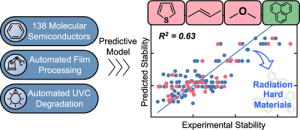
The semiconductor industry operates within a highly intricate global supply chain, where even minor disruptions can ripple across markets. In this landscape, artificial intelligence (AI) is emerging as a game-changing solution to enhance supply chain resilience. Erik Hosler, an expert in semiconductor innovation, highlights that by leveraging AI-driven tools, manufacturers and suppliers are achieving greater visibility, improving demand forecasting and proactively managing risks to ensure timely deliveries and minimize disruptions.
Enhancing Visibility and Forecasting Accuracy
AI’s ability to process vast amounts of data in real-time is revolutionizing supply chain visibility. Traditional methods often struggle to integrate data from diverse sources, leading to blind spots and inefficiencies. AI tools, however, consolidate information from across the supply chain, offering end-to-end visibility that empowers stakeholders to make informed decisions.
Demand forecasting is another area where AI excels, particularly in the semiconductor industry, where market trends and customer needs fluctuate rapidly. Machine learning algorithms analyze historical data, market conditions and external factors to provide precise demand predictions. This accuracy helps manufacturers optimize production schedules and inventory levels, ensuring they can meet demand without overproducing or stockpiling.
Erik Hosler remarks, “Predictive maintenance is essential for critical lithography toolsets, like EUV patterning equipment, but also mask and wafer inspection tools. Unscheduled downtime for any one of these tools can impact fab profitability to the tune of 100’s of thousands to millions of dollars in extreme cases.” By extending this predictive approach to the supply chain, AI can identify potential risks and recommend proactive measures to avoid costly delays.
Managing Risks and Ensuring Timely Delivery
AI-driven systems are also critical in identifying vulnerabilities within the supply chain. From geopolitical issues to natural disasters, AI algorithms assess risks and suggest contingency plans to maintain operational continuity. For instance, AI can simulate alternative sourcing strategies and logistic routes, ensuring manufacturers can adapt swiftly to disruptions.
By harnessing AI, the semiconductor industry is building a more robust and agile supply chain. These tools not only mitigate risks but also enhance efficiency, paving the way for a more reliable and resilient future for semiconductor manufacturing. With the ability to predict and adapt to evolving market dynamics, AI empowers manufacturers to stay ahead of potential disruptions and maintain a competitive edge. Moreover, the integration of AI fosters stronger collaboration across the supply chain, enabling seamless communication and coordinated responses to challenges in real-time.